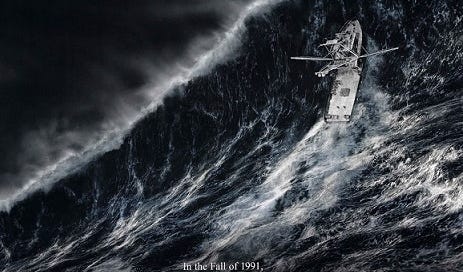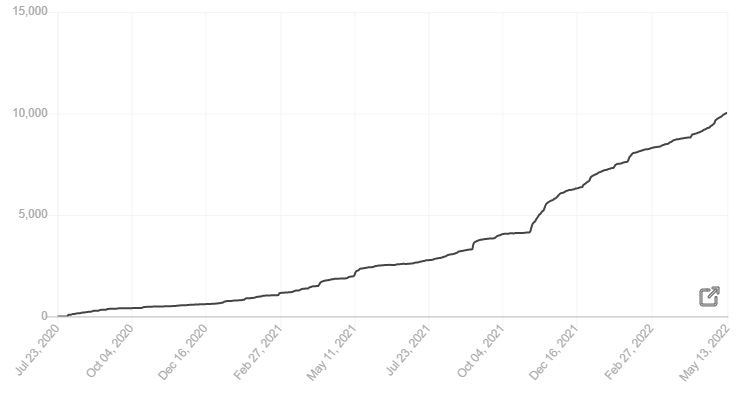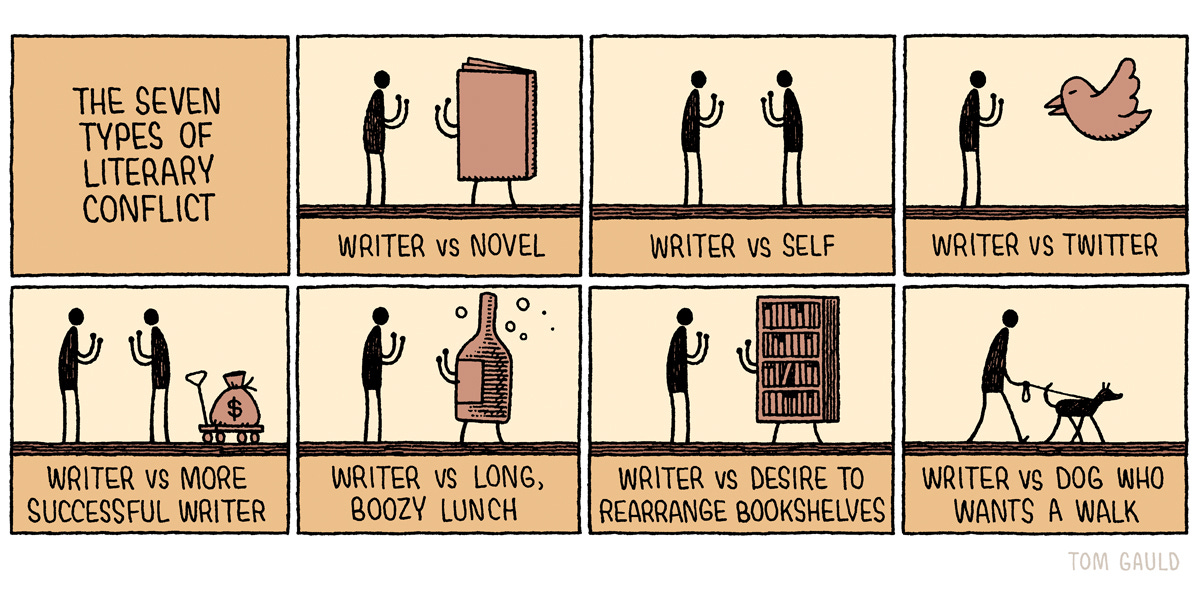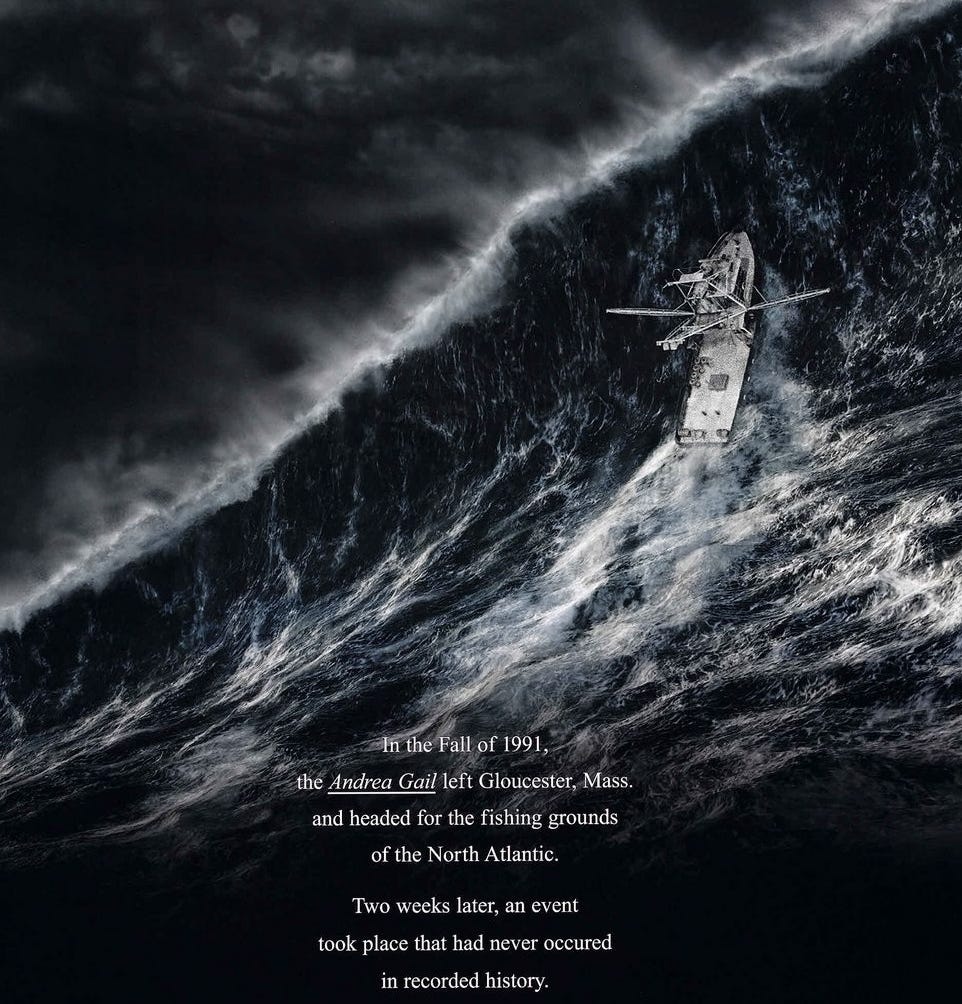Hello everyone,
It has been a year since I committed to writing but it feels much longer. I quoted Steven Pressfield’s War of Art: “the amateur does not love the game enough. If he did, he would not pursue it as a sideline … The professional loves it so much he dedicates his life to it. He commits full-time.” It was the kind of quote that sounded right but which I didn’t understand until I was living it.
On the one hand, I’m amazed and grateful for how the community has been growing and for the very kind feedback many of you provided.
On the other hand, I experienced a sequence of Sinnkrisen, crises of meaning and identity. Sometimes writing felt more like a compulsion than love. Something I couldn’t stop doing even when I questioned its meaning. What and who was I writing about - and why? Why did I dig into the stories of investors and entrepreneurs? Did it contribute anything to the world?
I often ended up frustrated and disappointed when I discovered that the subjects of my profiles were human after all. All of them flawed, some of them downright bad people. Their success often came at great expense, not only to others but to their loved ones and even themselves. What really were the lessons of their lives?
When I recently confided my struggles to a friend, he responded: “Don’t look for meaning.” Instead, he said, “look for use.”
A helpful reframing of my work but still a challenge. Because let’s face it: there is no blueprint to be found in any of these stories. There is no shortcut to wealth (although sometimes it gets created rather quickly). And there is a danger of being seduced into imitation. “The next Bill Gates will not start an operating system,” Peter Thiel once said. “The next Mark Zuckerberg won’t start a social network. If you are … trying to copy them, you are not learning from them.”
But even though there is little to be copied, there is much to be learned. In his biography of Alan Greenspan, Sebastian Mallaby wrote:
“One of the virtues of biography is that it allows readers to understand decision making as it really is—imperfect, improvised, contingent upon incomplete information and flawed human nature.”
Reality is messy and difficult. And yet there is value in studying the recurring patterns in the histories of ambition.
Against the odds
I found the common thread in my work when I reframed the stories not by the outcome but by the shared struggle. Conflict in literature can be boiled down into a handful of recurring themes:
Character vs. Character(s).
Character vs. Society.
Character vs. Self.
Character vs. Nature.
Character vs. God/Fate.
Character vs. Technology.
Character vs. Supernatural.
I realized I was drawn to a different contest, an amalgamation of many of the above: a character vs. the marketplace. Or man against market.
(I’m using man as in human which unfortunately doesn’t have the same ring to it.)
In my piece on storytelling I wrote about the hubris required to go up against the market. Whether in investing, building a company, or following a profession, we find ourselves in a struggle against:
The complex and anonymous marketplace.
A collection of fierce competitors at our poker table. We may get to know them intimately over the course of our careers. Some may even turn from enemies into partners (or vice versa).
Ourselves. Every day can turn into a test of our will, wit, and stamina.
Fate. We push back against a life on autopilot, against a destiny in the middle of the curve. We are unwilling to accept “fair” returns and mediocre outcomes. We want to be main characters, shape our stories, and mold the world.
I believe these stories resonate because we quickly see ourselves in the struggle. Kyle Harrison wrote about why so many people like sports: “It's the story. The story of hard work and difficult odds. Anyone can resonate with that.” Anyone who has faced and fought the market can resonate.
In addition to sports and other games I like the ocean as a metaphor. Vast, mysterious, treacherous, beautiful. And irresistible.
Sometimes we manage to ride a wave nobody thought could be mastered.

And sometimes we underestimate its complexity and danger.
Sometimes we need to find our own lives reflected in a metaphor to recognize what has been staring us in the face. Story by story we can internalize timeless ideas and, hopefully, apply them creatively in our own messy circumstances. I find this to be more valuable than a bullet list of insights. Because the soundbites of success often turn out to be empty calories. A snack quickly burnt and forgotten.
And it’s not just wisdom we are after. We face a journey that is at times lonely and full of setbacks. Our convictions are constantly challenged. We are forced to adapt and change to survive and succeed. As we enter the cave of our fears, we need more than mere advice. We need nourishment and encouragement. We crave mentorship and inspiration. Stories can’t offer community, but they can be a comforting candle as we descend into the dark.
The inner journey
I believe the world would benefit from a bit of reshuffling of the great fortunes. And I hope I can play a role in educating the next generation in their quest. Because the path to prosperity is as much about discovering, understanding, and mastering the world as it is about becoming more aware of ourselves. We wonder who we really are, how we are being shaped by our undertakings, and whether the sacrifices are worth it. As John Steinbeck wrote:
“The things we admire in men, kindness and generosity, openness, honesty, understanding and feeling are the concomitants of failure in our system. All those traits we detest, sharpness, greed, acquisitiveness, meanness, egotism and self-interest are the traits of success. And while men admire the quality of the first they love the produce of the second.”
In stories we find lessons not just about how to create and compound wealth but about the corrupting pressure of relentless ambition and crushing competition. We can recognize the danger that the pursuit of wealth poses to our character.
Going forward, I want to find a better balance of diving into stories and sharing my own. And I will do my best not to get lost in the weeds and lose sight of what is more important than wealth: the pursuit of a life worth living in a system that tells us every day that financial success is the arbiter of our value. You don’t need me to write 2,000 words to know that this is not true. But the occasional reminder is can’t hurt.
A year in: what did we learn?
I’m proud of some of my writing and some I’d rather forget. For those of you new to my world, here are some pieces from the past year worth checking out:
Personal:
Divorce, Denial, Dissonance Reduction: How to lose money and friends (“Everybody gets what they want out of the market.”)
About the business:
When getting rich goes wrong:
Floyd Odlum: Why one of the most successful investors of the Great Depression died nearly penniless.
Studying great investors:
Warren Buffett’s Reading Obsession
How Marc Rich found riches in regime change (and chose profits over politics)
Stanley Druckenmiller (going out on his own, navigating the crash of 1987, and his framework for markets)
David Tepper, King of Bouncing Back (and what I learned from him)
How Paul Tudor Jones navigated the crash of 1987 and the Japanese bubble
Studying business leaders:
Barry Diller and how he developed human search engines.
Michael Milken is one of the best networkers alive and you should study his methods.
How Bernard Arnault started his career as a takeover artist and built the LVMH empire
Leverage is one hell of a drug. Kirk Kerkorian spent a lifetime perfecting its use and rose from school dropout to one of the world’s richest people. Oh, it also cost him much of his fortune in the end
How did a people person like Michael Bloomberg build the world’s dominant financial information company?
Business History with Gary Hoover (“Nothing that deeply matters in business is new.”)






Frederik, congratulations on your first year! Keep up the great, insightful writing.
Kudos, my friend -- you're building something special here. Keep going! 💚 🥃